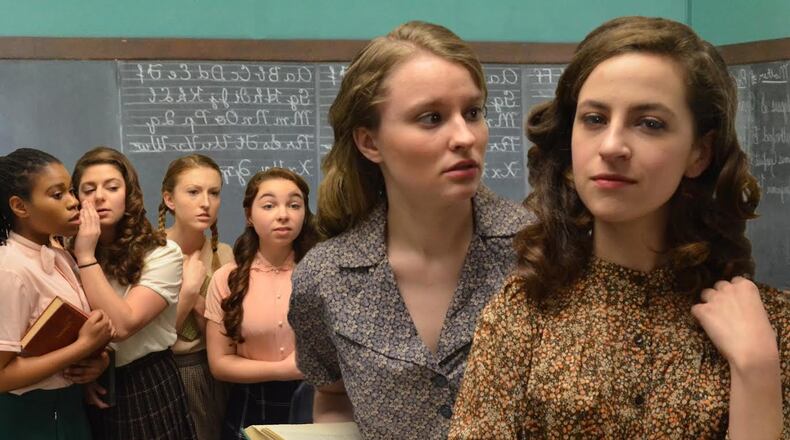“The themes in the play are still relevant today,” said director Marya Spring Cordes, who staged “The Music Man” for WSU last season. “There is thematic content related to bullying, lying for your own gain, righteousness, same-sex intimacies, and much more. What becomes of your life when something is said about you and it’s not a time when there is tolerance?”
Cordes also says the cast greatly researched the time period and various psychological matters in addition to gaining perspective on the value of empathy.
“As theater people, we are generally open-minded,” she said. “The cast members playing the intolerant people had a hard time finding empathy for those characters. So, we had to discuss (the degrees) of having empathy for the other side of the argument, which is so important today considering so many people are willing to argue but not willing to listen.”
The cast includes Katie Post as Karen Wright, Haley Knuth as Martha Dobie, Dana Bixler as Mary Tilford, Zac Pruett as Dr. Joseph Cardin, Megan Valle as Mrs. Amelia Tilford, Caitlin Shiner as Mrs. Lily Mortar, Brynnan McNeill as Rosalie Wells, Madeline Musico as Agatha, Heather Cooperman as Peggy Rogers, Rachel Woeste as Evelyn Munn, Taylor Patrick as Lois Fisher, Drew Longmore as Helen Burton, Kayli Modell as Catherine, Celia Arthur as Janet, Donnasia Allen as Leslie, and Grant Measures as Grocery Boy. Understudies include Isabella Andrews, Megan Arseneau, Casey Borghesi, Kaitlyn Campbell, Lauren Kampman, Sophie Kirk, Hailey Noll, Katie Sinicki, and Philip Stock.
“This show has been a brilliant process,” Cordes said. “We have had a great time working on it. The roles are so meaty. The play is also constructed in such a way that it takes you on a journey you think is complete but then there’s a twist. There’s a huge payoff in the end. I’m excited for the people who see this play that may be unfamiliar with it. The story is so relevant that not knowing much about it will allow you to have fresh eyes on what Lillian Hellman is trying to bring to the fore even in the 1930s which is still happening in our country today. This play will make you think about how far we’ve come yet how far we still have to go.”
In addition, “The Children’s Hour” was the subject of one of the first landmark court cases to address censorship of gay and lesbian subject matter. The show was slated to perform in Boston after its acclaimed Broadway run but was banned by the city’s public censor because of its “lesbian content.” In 1936, the play’s producer and the American Civil Liberties Union partnered to challenge the ruling in federal court, marking the A.C.L.U.’s first “gay rights” case and prompting censorship of gay-themed content in the arts to become part of the national conversation.
“The Children’s Hour” was also made into a landmark movie in 1961 starring Audrey Hepburn and Shirley MacLaine under the direction of three-time Academy Award winner William Wyler (“Ben-Hur”), who also directed the 1936 adaptation of the play entitled “These Three” starring Miriam Hopkins and Merle Oberon.
WANT TO GO?
What: "The Children's Hour"
Where: Creative Arts Center Festival Playhouse of Wright State University, 3640 Col. Glenn Hwy., Fairborn
When: Feb. 2-12; Feb. 2, 8 and 9 at 7 p.m.; Feb. 3, 4, 10, and 11 at 8 p.m.; and Feb. 5, 11 and 12 at 2 p.m.
Cost: $22 for adults; $20 students and seniors.
More info: (937) 775-2500 or wright.edu/theatre-tickets
FYI: The production is intended for adult audiences
About the Author

